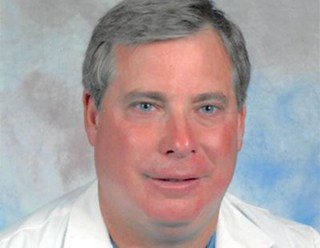


Dr. John Livingston | Medical Policy Adviser
I had the honor of attending yesterday's City Club of Boise forum on Medicaid expansion as the guest of Fred Birnbaum, vice president of the Idaho Freedom Foundation. Fred did an outstanding job of representing conservative principles as a basis for opposing Medicaid expansion—to an audience that was not predisposed to his position.
Over the past twenty-four hours, I’ve had time to think about the presentation of Fred’s opponent, Luke Mayville, founder of the Reclaim Idaho Medicaid ballot initiative. Luke, in his introductory speech, presented his “bonafides” as a caring Catholic. Luke then proceeded to outline a list of “victims” who would benefit from Medicaid expansion. I sat next to one of those victims at the guest table. She was introduced to the crowd as a person who was in the Medicaid gap and in need of coverage.
It is worth pointing out that Luke stated that people on the conservative side of the argument referred often to this group of people as "deadbeats." Fred pushed back, and affirmed that he had never used that term, nor had he heard anyone on our side of the debate use that term—ever. The only people who use the term “deadbeats” are people from Luke's position, when they assume they know the feelings of the opposition. It reminds me of a common liberal coping mechanism: using a form of “psychological transference” when they try to sort out their own feelings about issues.
Luke also unabashedly pointed out that there were 3,500 veterans who would benefit from Medicaid expansion. I am a veteran, and so is Fred. This statement was an insult to veterans. I am sure that a very few veterans would be willing to accept their position of designated “victim.” The overwhelming majority of vets are proud and hardworking individuals, who reject any attempts by liberal progressives to portray them as victims in need of government charity.
In fact, the private sector's response to serving veterans, through organizations like “Wounded Warriors,” is an example of how the private sector does a better job of taking care of those in need than any government organization.
This goes back to Luke's lack of understanding about very basic Catholic-Christian teachings. Nowhere in the New Testament or my Catholic Catechism can I find a place that upholds government as a conduit for Christian charity. Rather, it is a private responsibility. In answer to the question, “Am I my brother's keeper?” Jesus’ unequivocal response was “yes.” In addition, Jesus tell us individually: “What you do for the least of my brothers you do unto me.” It is our individual responsibility to look after those in need, not a government’s. Finally, remember Jesus’ statement “render unto Caesar that which is Caesar’s, and render unto God that which is God’s”: government and charity are separate realms. In fact, a charitable act is defined as a covenant between the giver and the receiver, to which God is a party.
Charitable Americans already keep pace with the government’s contribution to healthcare. In our country today, as described in a recent Wall Street Journal article, there are 35 million individuals giving charitable care to 55 million seniors, disabled family members, and friends. Overall, this unreconciled home healthcare is estimated to be worth $550 billion: about what the Federal government contributes to the Medicaid program today. This estimate doesn't include the opportunity cost of lost wages, had these kind volunteers been able to stay at their jobs, receive a salary, or accrue overtime pay.
It seems progressive liberals like Luke are always in search of a victim. Maybe in their own minds, they believe that the government should be the savior for those on the margin, or maybe they fancy themselves as saviors. But all one has to do is look at the limitations of government and the impacts that government programs have had. For example, consider Tri-Care, Military Medicine, the U.S. Department of Veteran’s Affairs, the Indian Health Services, or FEMA. Without private sector contributions from citizens, none of these organizations could function.
Furthermore, it isn’t government spending that makes a difference for those in need. From 1944 until 1965, the federal poverty rate naturally went from 33 percent to 14 percent. From 1965—when Great Society social welfare programs began—to the present, the rate has dropped only from 14 percent to 11percent, despite trillions of dollars of government investment.
Over that same time period, many great private institutions that witnessed to—and took care of—those on the margins have themselves been marginalized. The presence of the Catholic Church, for immigrants with its schools and hospitals, in the inner-city black communities, the historically black colleges, the local cotillions, and the family itself, has been rendered almost non-existent. Simultaneously, the birth rate of inner-city children and minority children has dropped by 50 percent, but the number of children being born into families with both a mother and a father has dropped from 70 percent to 30 percent. In New York City today, there is one abortion for every two live births in many minority communities. Who is the victim in these transactions? And who is subsidizing Planned Parenthood to the tune of 50 percent of its revenues? Not the Catholic Church, I hope. It is the government, in the name of social welfare programs. Where is the outrage of Catholics and Christians regarding this issue alone?
To conclude: “Beware of the pious.” In other words, take a closer look at those (like Luke Mayville) who walk around cloaked in their own self-proclaimed religious virtue.
Nobody—not me, nor Mr. Mayville, nor Nancy Pelosi, nor Paulette Jordan, nor any government agency like the Department of Health and Welfare—should assume they have the moral authority to speak or act for all of us. As the Magna Carta declares: The King—or in our case, the government—is not God.


